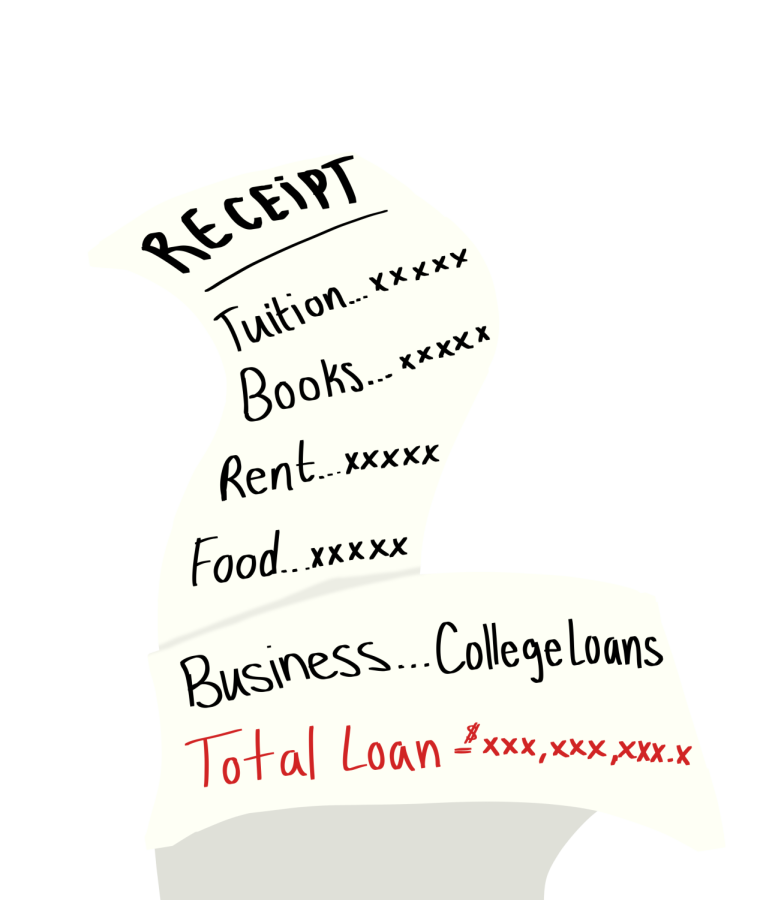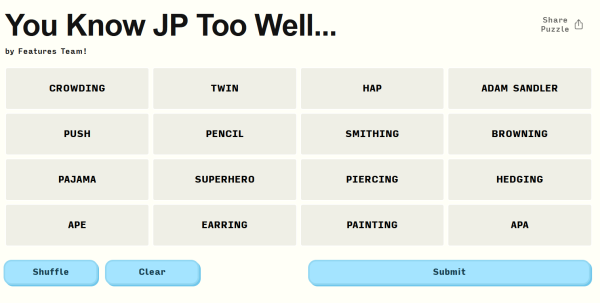A Plea for Going Loan-Free
April 17, 2023
The Biden Administration’s plan for student loan relief has become an object of heated debate in the Supreme Court. The administration plans to wipe out a whopping $400 billion in debt, but the court’s conservative majority has put into question its ability to do so. Chief Justice John Roberts suggested that the administration had violated separation-of-powers principles by acting with insufficient congressional authorization to undertake the ambitious executive action. Regardless of the Supreme Court’s much-anticipated ruling, one fact still remains constant: there is an unspoken national crisis caused by student loan debt. One-time student loan cancellation should be a priority that needs to be resolved by the Supreme Court because student loan debt constitutes both an economic and social justice barrier for a better America.
If student loan cancellation were to be put into effect immediately, the economy would be rejuvenated after years of tumult. In recent decades, especially after the 2008 Great Recession, outstanding student loan debt has skyrocketed, reaching as much as $1.7 trillion as reported by the Center for Law and Social Policy. To date, 45 million borrowers nationwide bear the burden as tuition rises and wages stagnate. Unfortunately, another recession brought about by the COVID-19 pandemic has only added fuel to the fire, as the issues of food and housing insecurity have become more pronounced, and families have been pressured to forgo education in order to put food on the table. Although it may seem as though student debt cancellation would be detrimental to the federal government as well as the economy, the Levy Institute suggests otherwise: cancellation would boost gross domestic product (GDP) by hundreds of billions of dollars and create up to 1.5 million new jobs, significantly reducing the unemployment rate in the process. This would ensure that no one has to give up a college education simply because their financial status creates a barrier. Furthermore, the labor shortage would become less devastating as more jobs fill up, and the economy would enter a stage of recovery as opposed to remaining in a stagnant recession.
The burden of student loan debt is not borne equally by individuals of different backgrounds; thus, student loan forgiveness will help close the gender and racial gap prevalent in American society. For instance, AAUW estimates that two-thirds of student loan debt is held by women, and it surely does not help that a disproportionately high amount of women have filed for unemployment since the start of the pandemic. Should student loan cancellation take effect, women will enjoy a greater sense of financial liberty as they are not held back by lower wages and accruing debt. Unfortunately, students of color are at a systemic disadvantage as well: the Education Data Initiative has concluded that they are far less likely to earn a salary that exceeds their student debt balance, particularly in the cases of Indigenous and Black students. Persistent discrimination in housing, employment, and access to educational opportunities have kept Black households from inheriting wealth, meaning that Black borrowers hold astronomically high levels of debt. The Federal Reserve has found that canceling just $50,000 in student debt would increase overall Black wealth by a third. Therefore, if the United States wishes to bring its ideas of equity to fruition, it must take the initiative to cancel student loans to level the playing field for marginalized groups.
All students deserve a chance at graduating loan-free, allowing them to have a brighter future in which financial status is not a barrier to success. College access should be a human right as opposed to a privilege that only a certain group of people can attain. As a self-proclaimed leading country of the world, America should go to great lengths to better protect each resident equally, regardless of socioeconomic status, gender, or race.







































